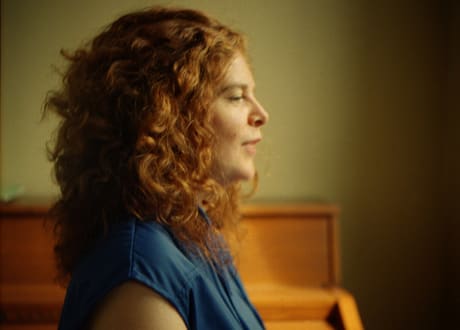With her heart-melting voice, Montreal's Katie Moore could rightly be compared to Emmylou Harris and Iris Dement, yet her country music is much closer to the soul, with deep grooves that make Montebello a stirring musical mélange. A critically acclaimed solo artist, Moore is also a key component of bizarre hip-hop/klezmer artist Socalled's circle of collaborators and, as such, she possesses an eclectic musical palate and a rich sense of humour. But in her folk music ventures, there is gravitas: the anthemic qualities of "Another Dollar" and "Wake Up Like This" make them calls to arms, showcasing a strong voice and perspective. Throughout, it's as though Joni Mitchell usurped Bob Dylan during the sessions for Desire, embracing the free spirit and raw emotive power of the sessions, but measuring it all with an even countenance that commands more power than any wailing might. With its allusions to loss, longing and regret, Montebello is ripe with adversity and triumph; it's an earthy, contemporary blues record made by musicians on a higher plain, showcasing the enigmatic Katie Moore as a kindred spirit to Will Oldham: a true blue artist unloading precious weight from her weary mind.
How'd you get the nice sound of Montebello down?
I did it at these two analog studios in Montreal. I love recording live because everyone's there together working on it and you get excited because the take either works or it doesn't. That's much more fun and romantic than working on a computer, where you can fix your problems. But I also think the sound is warmer; you can visualize the instruments when you listen to it ― where they are in the room. It makes the music more alive.
Did working with Socalled inform these songs?
At the heart of his music is his love of a good melody. He looks for old ones and gussies them with his beat machine. He's also an amazing piano player; I could listen to him play for hours. We work on songs differently. He has no ego about it, whereas I'd hide in a closet until I felt the world was ready for it. Songwriting is really therapeutic for me. If someone passes away and I'm really sad about it, I usually write a song and feel a lot better.
(Purple Cat)How'd you get the nice sound of Montebello down?
I did it at these two analog studios in Montreal. I love recording live because everyone's there together working on it and you get excited because the take either works or it doesn't. That's much more fun and romantic than working on a computer, where you can fix your problems. But I also think the sound is warmer; you can visualize the instruments when you listen to it ― where they are in the room. It makes the music more alive.
Did working with Socalled inform these songs?
At the heart of his music is his love of a good melody. He looks for old ones and gussies them with his beat machine. He's also an amazing piano player; I could listen to him play for hours. We work on songs differently. He has no ego about it, whereas I'd hide in a closet until I felt the world was ready for it. Songwriting is really therapeutic for me. If someone passes away and I'm really sad about it, I usually write a song and feel a lot better.
